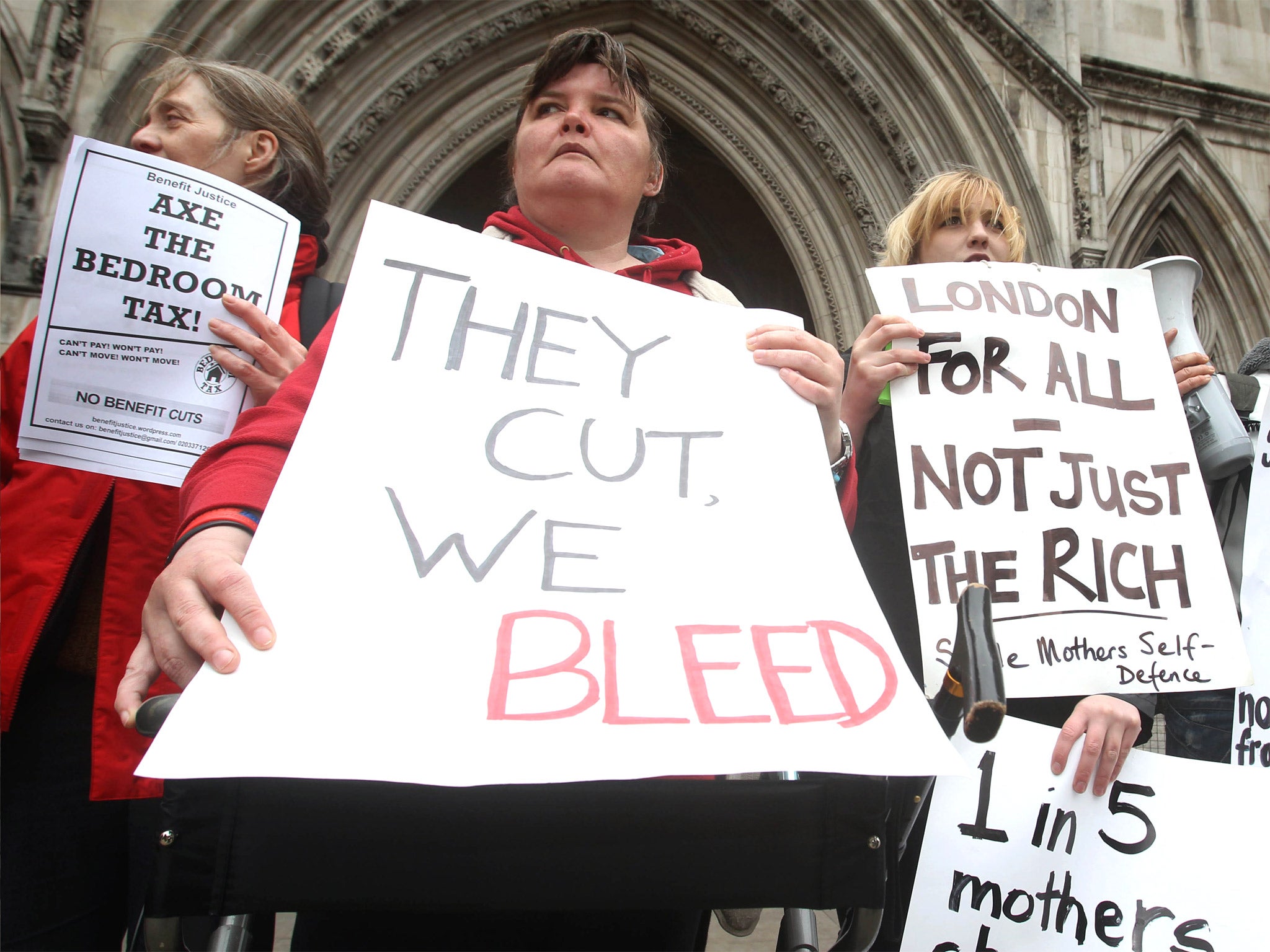Disabled families challenge ‘bedroom tax’ in High Court
Group says new rules on housing benefit breach human rights

Ten disabled people have taken the Government to the High Court claiming that Iain Duncan-Smith’s introduction of the so-called ‘bedroom tax’ is discriminatory and breaks human rights laws.
A spina biffida sufferer is among the group claiming that social housing tenants with disabilities have been unfairly included in the welfare benefits cut because they often require more space to cope with their health needs.
New housing benefit laws, which came into force last month, mean that social tenants deemed to have spare bedrooms will be given less money to cover their rent. Those with one ‘spare’ room receive 14 per cent less housing benefit and those deemed to have two or more spare, a reduction of 25 per cent.
But in a three-day hearing due to finish tomorrow, lawyers have argued that the charge is discriminatory for disabled people who require extra rooms because they are unable to share with a spouse or a sibling.
One family, which cannot be identified for legal reasons, was assessed as requiring three bedrooms because a six-year-old boy with behavioural and mental health issues is a danger to his sister in a shared room. But his mother has now been told she is under-occupying the family flat.
Among the claimants is Jacqueline Carmichael, 40, who has spina bifida and lives with her husband Jayson, 50, in a two-bedroom housing association flat in Southport.
The NHS provided her with an electronic bed to help her cope with being bed-bound, but the bed is single and there is no space in the room for another, so her husband has to sleep in a second room. Since 1 April, the Carmichaels have had their housing benefit reduced by 14 per cent.
Mr Carmichael said: “We’re badly off as it is because I’m a full time carer for Jacqueline. The flat is small – we have problems getting around it because the hall is so narrow, I can’t think how we’d fit into something smaller. David Cameron should go back to the drawing board.” Mrs Carmichael added: “We’ve had to cut back on spending already and I don’t know what else we can cut. I think the Government hasn’t thought this through; they’ve just made a blanket decision and they don’t care who suffers for it.”
The hearing, which forms a test case against the Department for Work and Pensions, will decide whether the new regulations breach Article 14 of the European Convention on Human Rights, which protects against discrimination. Iain Duncan Smith, the Work and Pensions Secretary, is also accused of failing to comply with his public equality duty under the 2010 Equality Act.
Martin Westgate QC told Lord Justice Laws and Mr Justice Cranston: “Each of the claimants has a need, because of disability, to occupy accommodation larger than that which would be allowed to them under the size criteria.”
Paula Peters, 41, from Bromley, was one of several disability cuts protesters outside court. “In my area they’re already evicting people with disabilities,” she said. “I’ve got rheumatoid arthritis and bipolar and I’ve already been affected by the work capability assessment; these cuts are too much.”
A DWP spokesman said: “We are confident that these measures are lawful and they do not discriminate against disabled claimants or those with shared care of children.”
The DWP said it is giving councils an extra £25m for those affected by the removal of the spare-room subsidy to support disabled people who live in significantly adapted accommodation.
Join our commenting forum
Join thought-provoking conversations, follow other Independent readers and see their replies
Comments
Bookmark popover
Removed from bookmarks